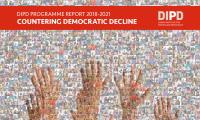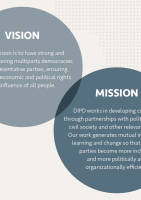Georgia
Georgia has been moving towards democracy since independence, although democracy is currently declining
Georgia has been developing democratically since its independence in 1991. The first democratic elections occurred in 2012. However, the situation has significantly worsened in recent years, with anti-democratic trends defining political evolution and endangering both democracy and human rights in the country. This is partly due to the government's heightened dictatorial tendencies, as evidenced by the suppression of opposition politicians and democracy campaigners. Although the majority of the population shares European values, the administration has strong links to Russia.
The country also has distortions in its protection of free assembly and expression, resulting in unequal rights for the populace. Authorities frequently fail to protect the freedom of assembly for LGBT+ groups, while democratic ideals face challenges within the judiciary.
Both political and social actors are attempting to combat democratic decline and the limits of political pluralism. New parties are slowly developing with the goal of establishing alternative political platforms. Despite ongoing limits on freedoms due to security concerns stemming from Russia's war in Ukraine, it is critical that democratic opposition parties and social movements be mobilised in the fight for a better democracy.
Population: 3,688,647.
Liberal Democracy Index: 0.54.*
[LDI encaptures both electoral and liberal aspects of democracy]
Proportions of Seats held by Women in Parlament: 14.6%**
Proportions of Seats held by Youth under 30 in Parlament: 0,7%**
*V-Dem Institute
**IPU.org






